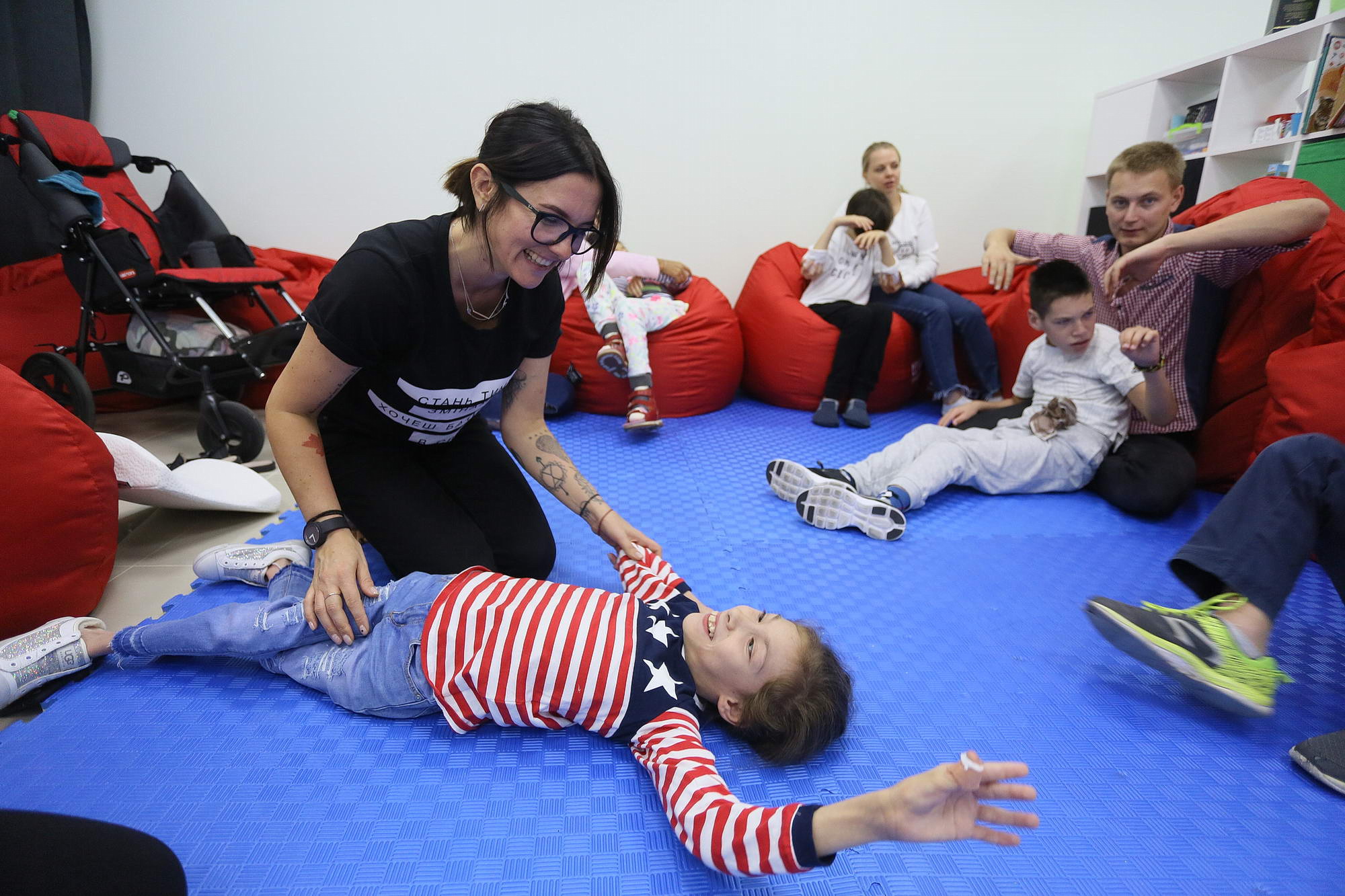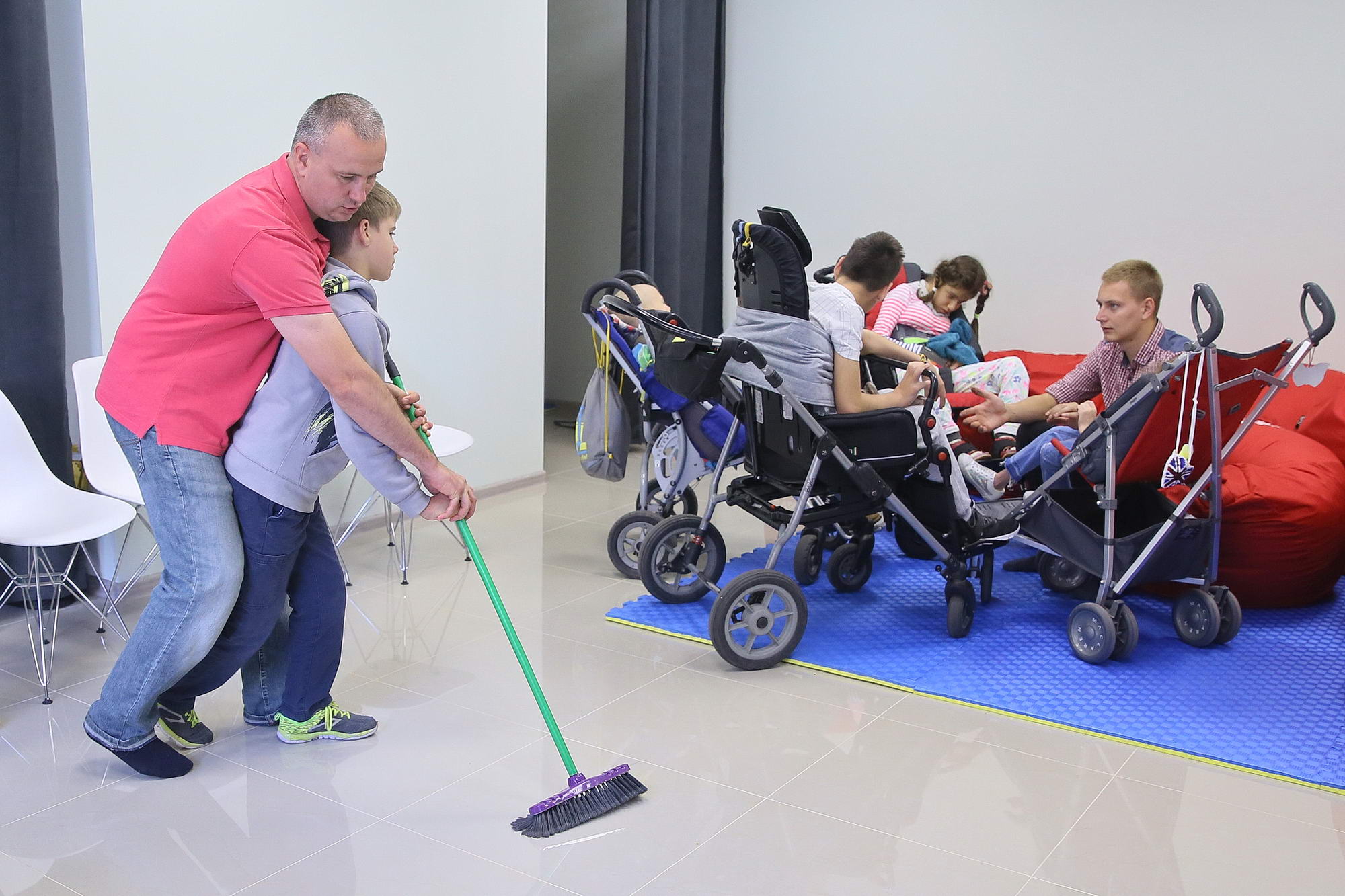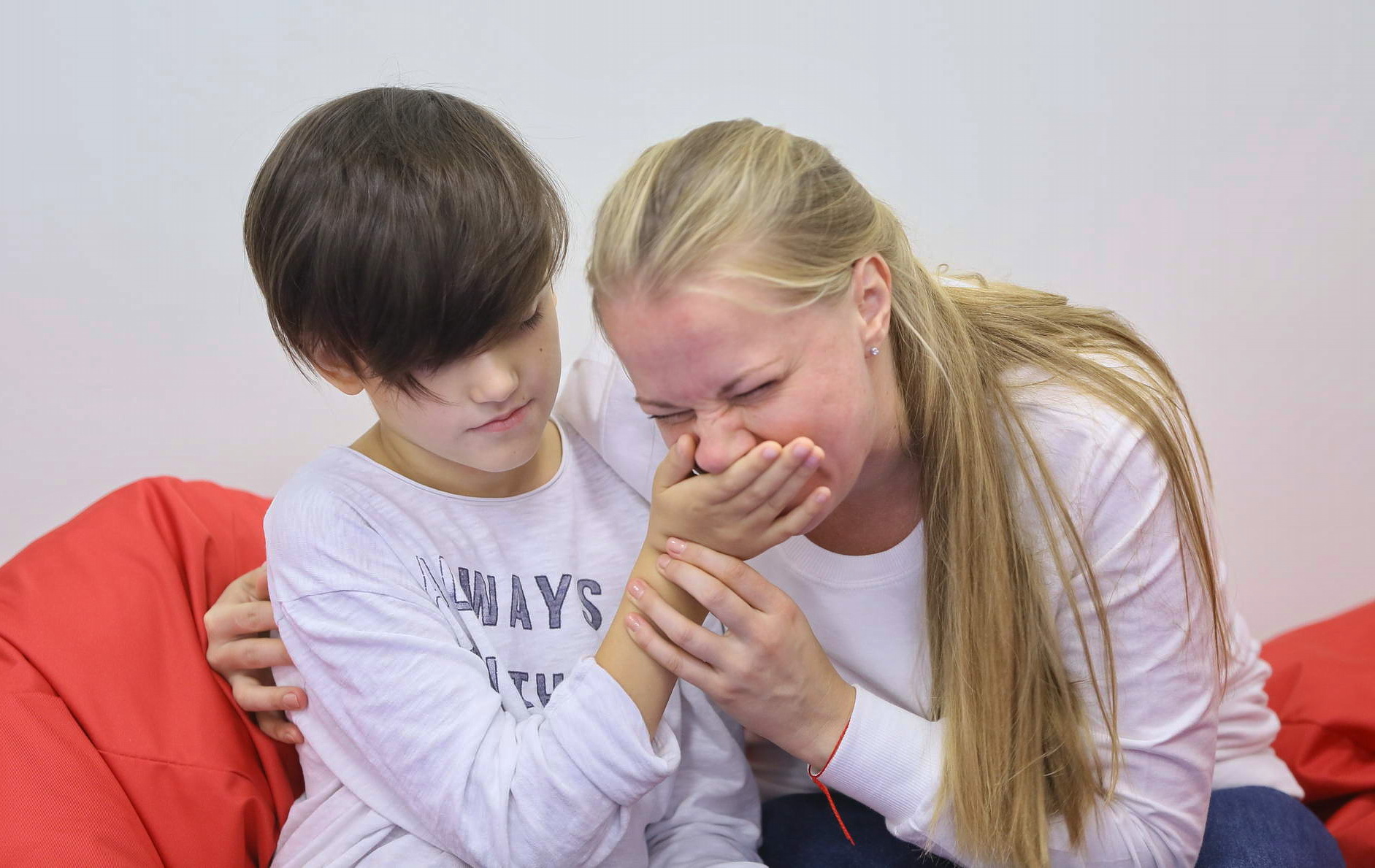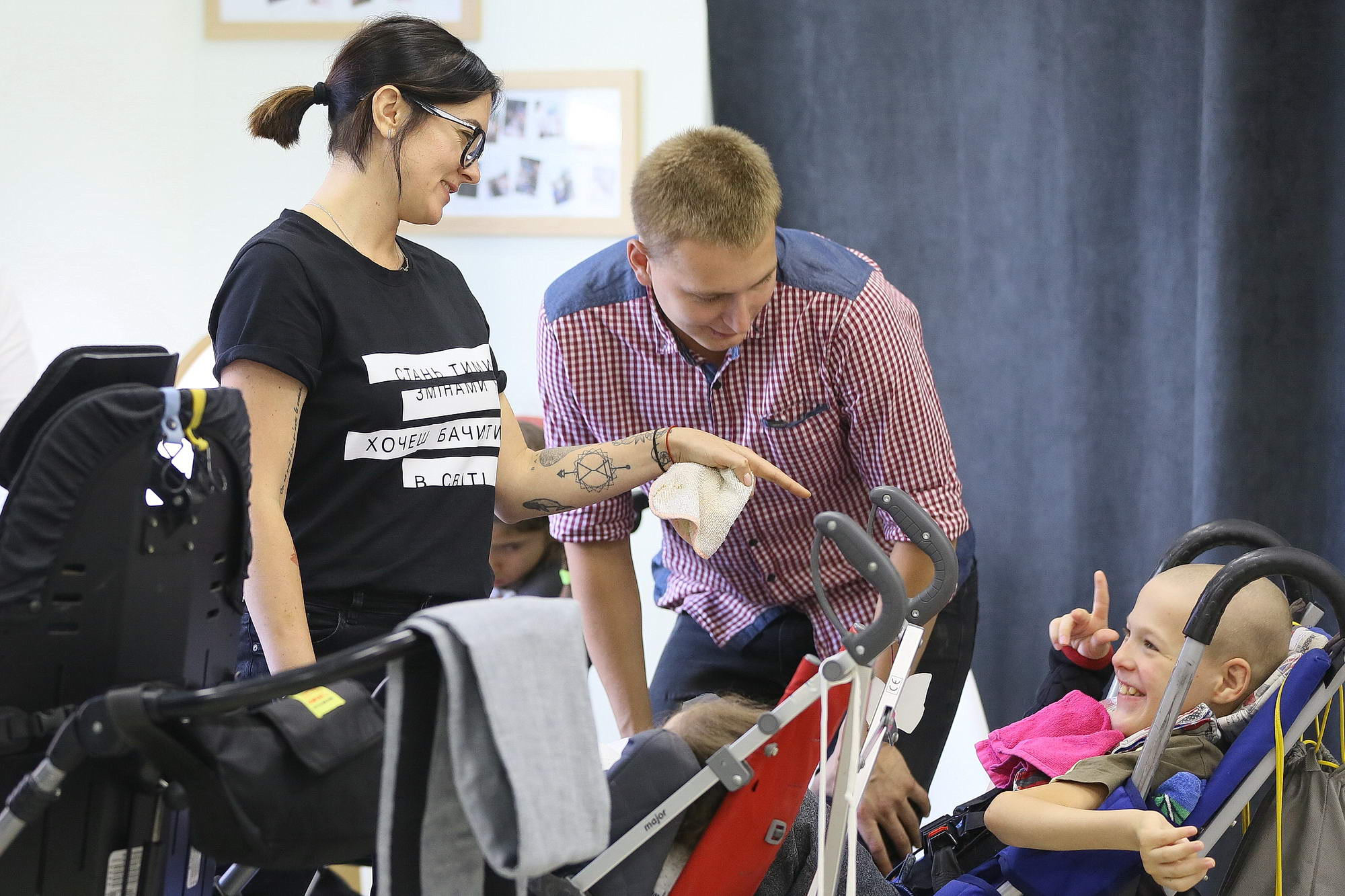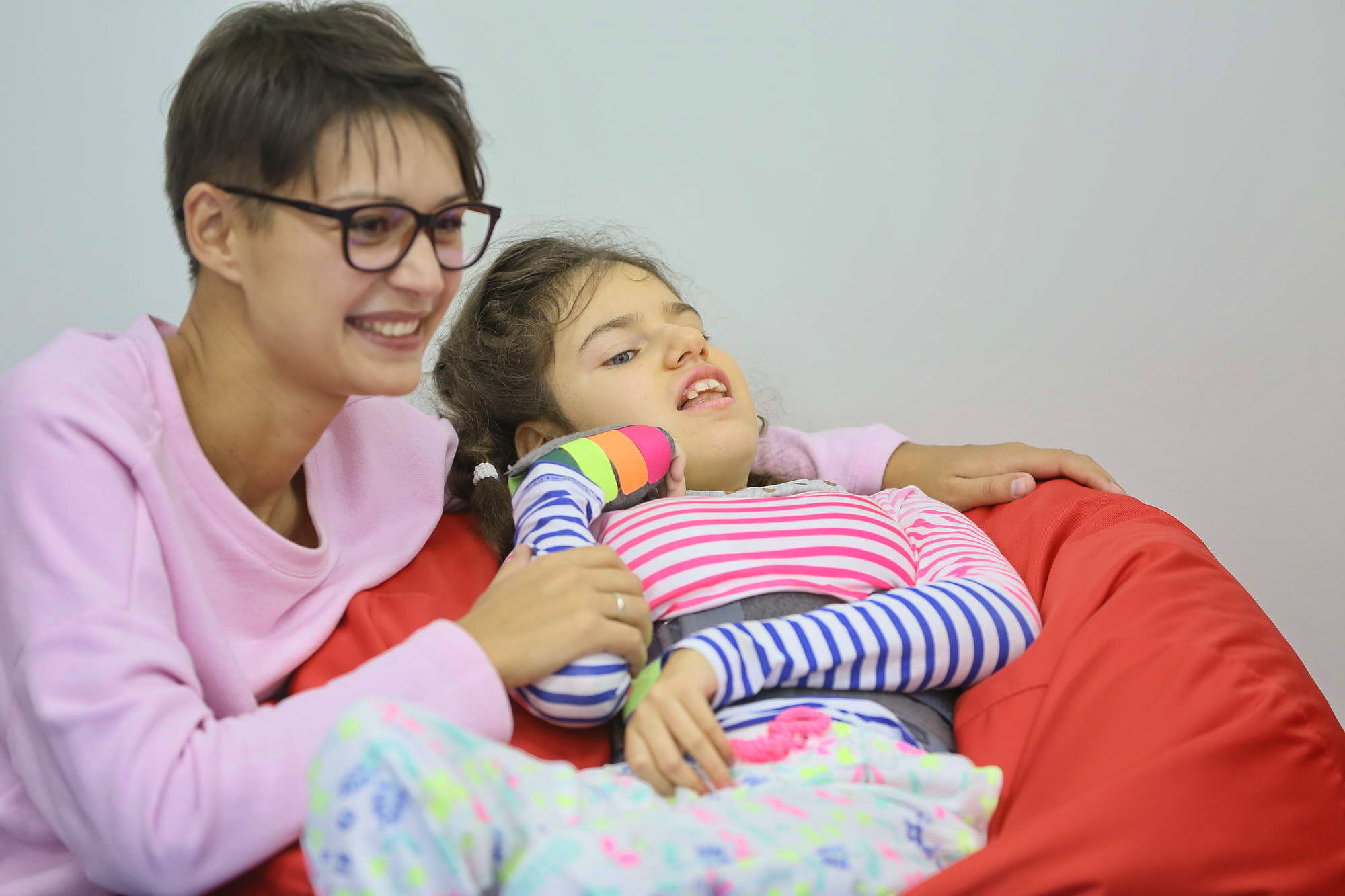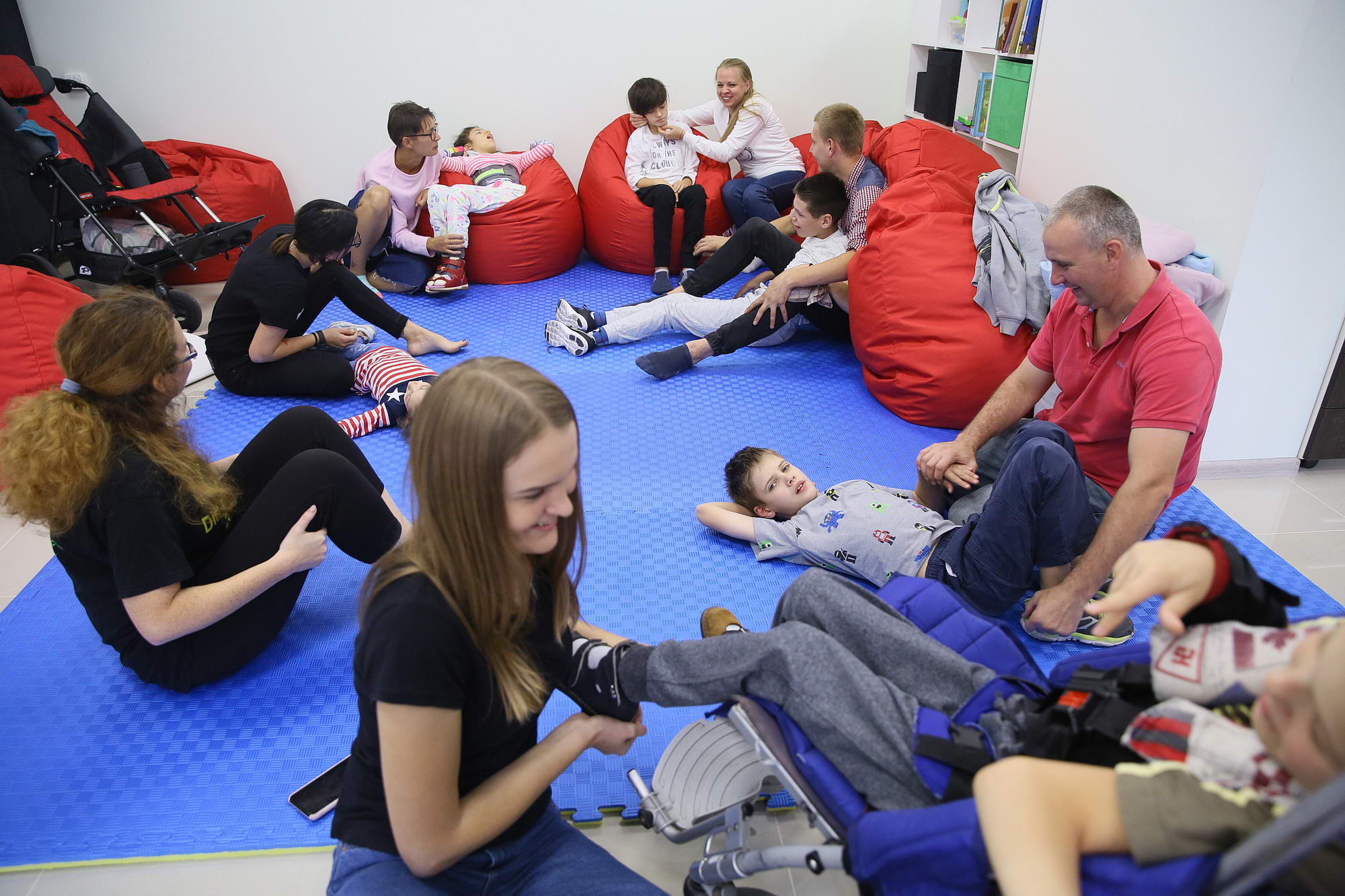Diagnosed with autism and visual agnosia, a rare form of vision impairment, Lev Onufryk, 9, until recently could only be taught at home: He requires special care and support that even those Ukrainian schools that have inclusive classes are unable to provide.
But now Lev is able to study together with other children, having been enrolled in Open4u, a new inclusive rehabilitation center for children with disabilities that was launched in Kyiv on Sept. 17.
Lev’s mother, Marianna Onufryk, 38, says that it is extremely important for children with disabilities to experience at least some changes in their routine.
“Children with disabilities cannot always have the same routine, the (same) habitual situations,” says Onufryk. “Changes push them towards improvement. And if a child is prepared to cope with change, it can be very useful.”
The main aim of the coordinator of Open4u, Olesia Yaskevych, 37, who has been developing the project for many years, is to teach children with disabilities how to interact with each other.
“The first goal of this project is to help children with disabilities communicate with each other and also to show them how they can interact with other kids through games, drawing and other types of creativity,” says Yaskevych.
“The second is to show their parents that it is possible for children with disabilities to spend time and have some fun without them.”
Charity
Open4u has funding to work until next May, with 36 children with disabilities taking part in its free rehabilitation and socialization program.
Each of the 36 children has an individual program of rehabilitation and development created by Open4u.
“We analyzed every little detail, and for every child we created an individual plan for development with immediate, long-term and short-term goals,” says Yaskevych.
The project was funded by Kurazh Bazar Flower Power, a charity event held in Kyiv on June 23-24, which collected Hr 1.5 million ($53,500) in donations to create a summer camp for children with disabilities called Space Camp, as well as the Open4u rehabilitation center.
Tetiana Raykova-Pylypchuk, 31, the public relation manager at the Ukrainian Philanthropic Marketplace, said the main advantage of Open4u is that it allows children with disabilities who are not accepted either by nurseries or schools to interact with other children.
“In general, this center is a pilot project established to show the country, and to show our people that the law on inclusion, which was adopted last year, is just a law on paper, with no concrete actions to help children with disabilities and no contribution to their socialization,” says Raykova-Pylypchuk.
“In fact, children with disabilities are not studying anywhere, as there are almost no special institutions to deal with them, where they can communicate with other children. For these kids, Open4u is the only way to do something.”
The law on inclusion was adopted in May 2017, with the aim of creating appropriate conditions for educating people with disabilities, taking into account their need for inclusive education. According to the Ministry of Education and Science of Ukraine, some 4,180 children with disabilities were covered by the program on inclusive education in 2016-2017, when the total number of children with disabilities under 18, as estimated by State Statistic Service of Ukraine in 2017, is 159,044 or 38 times more.
Yaskevych said the whole process of inclusion was very complicated and requires more time.
“Imagine a child with disabilities in a modern Ukrainian school – even if this child is accepted, he or she will not be able to study. Children with disabilities are usually taught individually. Yes, a certain number of kids are covered by the program on inclusion, but all of them have relatively less serious health problems and diagnoses,” says Yaskevych. “Schools, teachers, parents are not yet ready to accept children with the kind of disabilities who attend the classes in our center.”
Open4u arranges workshops and classes to help children with disabilities socialize and integrate with the rest of society. The first half of the day, from 9:30 a.m. to 2 p.m., is dedicated mainly to communication among children with disabilities, teachers and volunteers.
Children without disabilities are invited to spend the rest of the day, starting at 4 p.m., together with children with disabilities, taking part in workshops and games.
“Children will communicate through games, through everyday habits, and we will teach them how to interact with each other. Our aim is to treat them not like little children, but more like teenagers,” says Yaskevych. “We will talk about modern art, about (the artist Claude) Monet, and others.”
To apply for a place on the rehabilitation courses the parents of the children with disabilities had to fill out forms, which included the questions about their financial position. The program’s coordinators wanted to provide help primarily to those families who were unable to pay for the courses themselves.
“It was important for us to help those children who really need this help, but who have no other opportunity to get it,” says Raykova-Pylypchuk.
Open4u has already invited around 40 specialists to carry out various workshops for children with disabilities, including workshops on paper craft, history of art, drawing and sculpture, and a number of classes on reading, dancing, acting and cooking.
The center welcomes any willing to volunteer and help children with disabilities socialize and communicate.
“We invite everybody to visit the center, to spend here an hour or two, just to read a book, to play, or simply to talk. We want everybody to have this opportunity to communicate with children with disabilities, with no restrictions,” says Raykova-Pylypchuk. “And I personally think that all the big changes in our country should start at such places.”
Open4u. (6V Lobanovskoho Ave.) Mon-Fri 10 a.m. – 6 p.m. www.facebook.com/open4ukyiv
